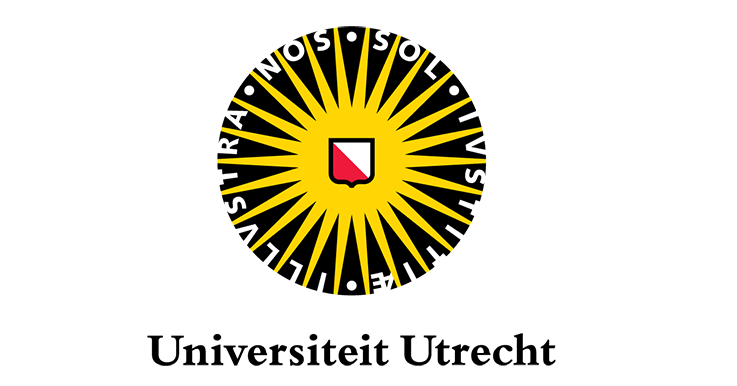By Jacob Hepkema
Want to know what a Master’s student’s life in Utrecht is like? If so, please do read on. I graduated this spring, and just started (in September 2017) with the two-year research Master’s programme Molecular & Cellular Life Sciences at Utrecht University. After graduating from UCR, you will encounter many differences in your new student city. Here are some of my experiences so far.
A non-international environment
Strangely enough, most people here speak Dutch in their English-taught Master’s programmes. For the few international people that are taking these Master’s programmes, I can imagine that this must be quite annoying. There is no such thing as “English on campus”; speaking Dutch with Dutch classmates is the standard. However, this happens mostly in conversations between lectures. Perhaps this is different in other (more international) programmes.
Finding a room
Although Villex has not always been congratulated on their housing services, one thing from this interaction, compared to other cities, is a big plus: living on campus, and getting appointed a room. This is not the case in Utrecht, and finding a room can be a challenge – also because there are even more students in Utrecht than in Middelburg. I have found my current room after spending a couple of months on kamernet.nl, the Kamer in Utrecht Facebook page, sshxl.nl, and some less well-known student housing sites. However, right now, my place is still far from optimal, and this is mostly a result of starting to look too late for rooms. If you start looking too late, you will find yourself stuck in a house with a housemate who is not up for social stuff, a loud family next door, and the fresh smell of a water treatment plant in the morning (yes, I am looking for a new room).
Some of the best rooms are from SSH, and if you want to get a room there (it works with a waiting list), you should sign up as soon as possible. Really: if you think there is a chance you might study in Utrecht after your Bachelor’s, sign up on the site; it is a one-time fee and it might save you a lot of time. I have been on the waiting list since May, and my SSH page looks like this:
My SSH rank after some months. Getting there!
Lack of a campus community
As I do not have (active) housemates in my current house, it was quite the switch from living with 16 people in Bagijnhof 7. So, if you are going to live in a place like mine: know that you have (and should) get out of your house to meet people, find activities you like, and just to do stuff in general. In Middelburg, board life, activities, and people with similar interests are abundant, and will come to you. This is not the same in Utrecht. To start, look around during the UITweek (the Utrecht equivalent of the UCR intraweek) for things to join. For instance, I enjoy the cultural centrum of Parnassos a lot – where you can rent a room with a piano for a “habbekrats”.
Science in practice
One thing I missed during my Bachelor’s at UCR was the practical aspect in my science courses. And, although there were laboratory courses offered (of which I took only one, so I cannot speak for all of them), these were not particularly connected to the theory I learned during my courses. In my research Master’s, this is different. Yes, there are theoretical courses, but the main part of my Master’s programme is research internships (one 9-month internship and one 6-month internship). During the internship, you read up on the subject, and meet with supervisors and other laboratory staff. You discuss what you want to research, and after practical introductions, just start working. At the beginning, a lot of mistakes will be made, but – hopefully – that’s part of the learning process.
I am currently doing research in a cell-biological laboratory on the Uithof. It’s very fundamental, mechanistical research on cytoskeletal organization (the cytoskeleton includes the “highways” of the cell, and, as the name suggests, it is like the “skeleton of the cell”). I get to take nice pictures (see below). This will be the nine-month internship; I started in October, so I have a long way to go, but so far, it has been pretty rad.
Immunofluorescence image of DNA (blue), microtubules (red) and +TIPs (green).
Fake it ‘til you make it
After surprisingly being admitted to this Master’s programme having taken just two life science courses, I need to do a lot of extra reading in my spare time. This is partly a result of the fact that I took music courses “instead of” life science courses, but so far, it has been doable. So, if you are doubting whether you should do a music minor combined with a science major while wanting to do a science Master’s programme: know that it might not be too helpful for your future studies, but if you like it, it’s very much doable! I enjoyed it a lot.
Lack of UCR
And, this might be (read: definitely is) very cheesy, but UCR was, in hindsight, a very nice place to study. It has a great atmosphere, small-scale but fun nightlife, great board life, and great education. So, please, try to make the most out of it. Before you know it, you are “stuck” in a nine-to-five working day-internship, and life is getting “real”. Responsibilities!
Jacob Hepkema, Class of 2017, is a Chemistry and Environmental Science major from (the one and only) Lelystad, the Netherlands

